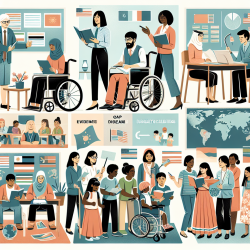Introduction
The COVID-19 pandemic has been a stress test for health systems worldwide, highlighting the need for resilience in primary health care (PHC). A recent study titled What made primary health care resilient against COVID-19? A mixed-methods positive deviance study in Nigeria explores the factors contributing to resilient PHC systems in Nigeria. This blog will discuss how practitioners can enhance their skills by implementing the study's findings or conducting further research.
Key Findings from the Study
The study identified 57 Local Government Areas (LGAs) in Nigeria as "positive deviants" for their ability to recover PHC service volumes during the pandemic. These LGAs demonstrated higher outpatient service volumes and were more integrated, aware, and self-regulating than their counterparts. Key characteristics of these resilient LGAs included:
- Integrated Systems: Coordination across sectors and community engagement were crucial. Local leadership played a significant role in managing the response.
- Awareness: Leveraging local resources and understanding community needs helped in maintaining service delivery.
- Adaptation: Demand-side adaptations, such as incentives for service use, were more common in resilient LGAs.
Implications for Practitioners
Practitioners can enhance their skills and improve outcomes by adopting the following strategies:
- Foster Leadership and Coordination: Engage local leaders and create specific coordination structures to manage health crises effectively.
- Enhance Community Engagement: Use existing community structures to maintain communication and encourage health service utilization.
- Leverage Local Resources: Identify and utilize local funding and human resources to fill gaps in service delivery.
- Implement Demand-Side Adaptations: Offer incentives and conduct outreach activities to encourage service use.
Encouraging Further Research
While the study provides valuable insights, there is a need for further research to explore the mechanisms linking resilience capabilities and outcomes. Practitioners and researchers are encouraged to investigate the role of local leadership, community engagement, and social capital in health systems resilience.
Conclusion
Building resilient health systems requires a combination of top-down and bottom-up approaches. By focusing on leadership, community engagement, and resource utilization, practitioners can enhance their skills and contribute to more resilient health systems. For those interested in a deeper dive into the research, I encourage you to read the original study: What made primary health care resilient against COVID-19? A mixed-methods positive deviance study in Nigeria.










